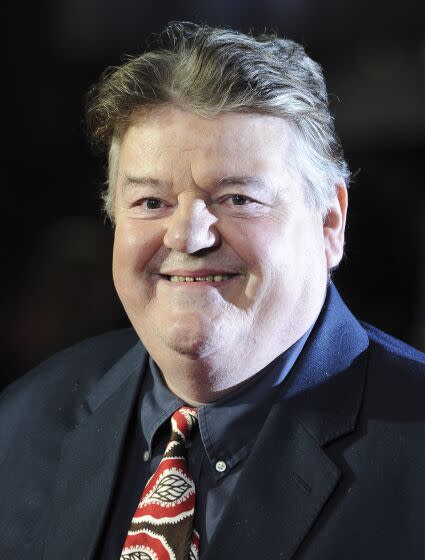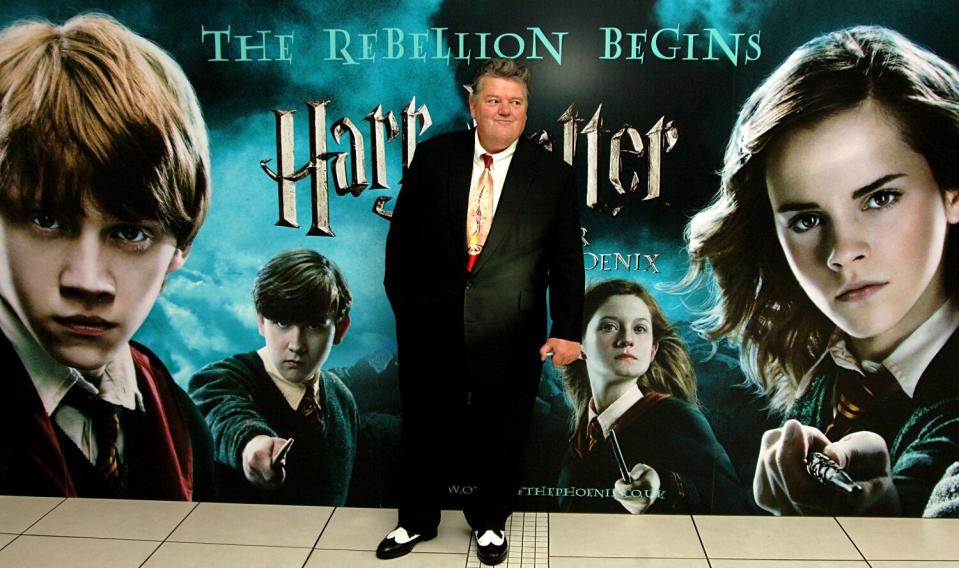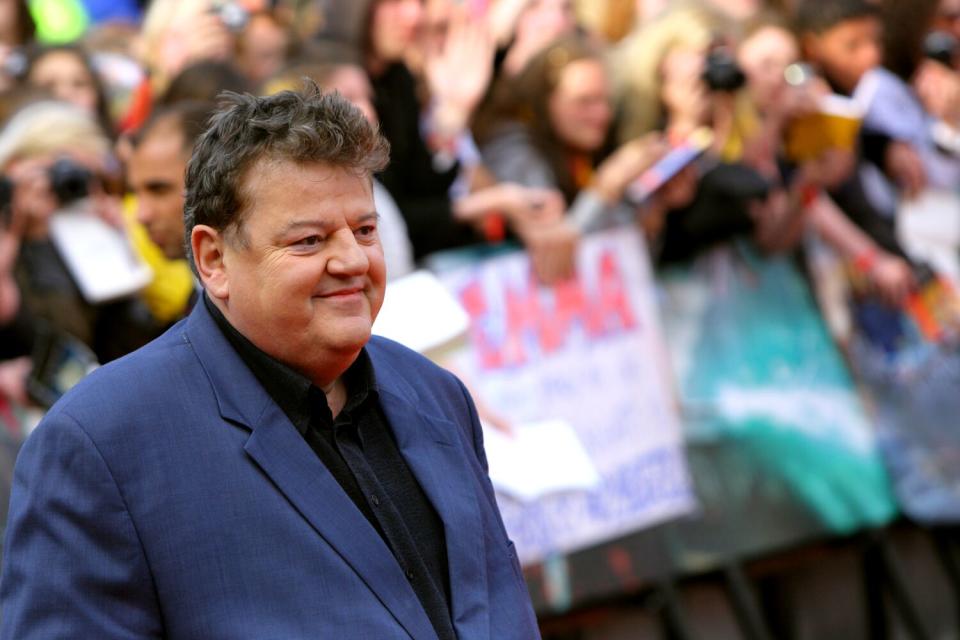Robbie Coltrane, actor who starred in 'Harry Potter' series as Hagrid, dies at 72
- Oops!Something went wrong.Please try again later.
- Oops!Something went wrong.Please try again later.
- Oops!Something went wrong.Please try again later.

Actor Robbie Coltrane, known for portraying the grizzly, but friendly half-giant wizard Rubeus Hagrid in the "Harry Potter" film franchise, has died, The Times can confirm.
Representatives for Coltrane's talent agency WME told The Times that the actor died Friday at the at the Forth Valley Royal Hospital in Larbert, Scotland. No cause of death has been revealed. He was 72.
Coltrane was widely known for starring in the "Harry Potter" franchise, based on the books by J.K. Rowling, alongside Daniel Radcliffe in the title role. His first appearance in the book-turned-film series was in 2001's "Harry Potter and the Sorcerer's Stone." His additional television and film credits include starring roles in British series "Cracker," "The Comic Strip Presents" and "Tutti Frutti" and in James Bond movies "Goldeneye" and "The World is Not Enough."
He is survived by his sister Annie Rae, his children Spencer and Alice and their mother Rhona Gemmell.
Social media tributes from Radcliffe, Rowling and others began rolling in shortly after Coltrane's death was announced. On Instagram, Radcliffe remembered Coltrane as "one of the funniest people I've met," and also shared an anecdote from their filming days.
"I've especially fond memories of him keeping our spirits up on 'Prisoner of Azkaban,' when we were all hiding from the torrential rain for hours in Hagrid's hut and he was telling stories and cracking jokes to keep morale up," Radcliffe wrote. "I feel incredibly lucky that I got to meet and work with him and very sad that he's passed. He was an incredible actor and a lovely man."
On Twitter, Rowling said she will "never know anyone remotely like Robbie again."
"He was an incredible talent, a complete one off, and I was beyond fortunate to know him, work with him and laugh my head off with him," the author tweeted on Friday.
Also paying tribute on social media were the Wizarding World and fellow British actors and former co-stars Hugh Laurie and Stephen Fry.
Coltrane, né Anthony Robert McMillan, was born on March 30, 1950, in the Rutherglen suburb of Glasgow, Scotland. The child of a general surgeon and pianist, the actor's affinity for arts and entertainment began at an early age.
He pursued his passion for the arts at the Glasgow Art School, where he studied drawing, painting and film. His education also comprised of art studies at the Moray House College of Education and Sport at Edinburgh.

The Glasgow native dove into the entertainment scene in his 20s when he made the 1973 documentary "Young Mental Health." He soon found himself in the company of fellow artists, pursuing comedy and taking on the stage name “Coltrane” — a tribute to musician John Coltrane.
Among his early gigs was the “Comic Strip Presents” series, which also featured Emma Thompson and Hugh Laurie. Throughout the '80s Coltrane went on to appear in a number of film and television projects, including “Flash Gordon,” “Metal Mickey,” “Ghost Dance” and “A Kick Up the Eighties.”
Television comedies became Coltrane’s stomping ground, as he racked up additional credits in the sketch comedies “Alfresco” and “Laugh??? I Nearly Paid My Licence Fee.” In 1987, he appeared in the drama series “Tutti Frutti” as rocker Danny “Big Jazza” McGlone. He also met Gemmell, who was a student at the time.
The following decade was a busy one for Coltrane. In 1992, Coltrane and Gemmell welcomed their son Spencer. Six years later, daughter Alice was born. Coltrane and Gemmell married in 1999.
In 1994, he published the autobiography “Coltrane in a Cadillac,” in which he spoke about his passion for vintage cars, and starred in a series of the same name.
Most notably that decade, he debuted as Dr. Edward ‘Fitz’ Fitzgerald in the crime drama series “Cracker.”
He told told The Times in 1995 that he attended Gamblers Anonymous meetings to prepare for the role.
“He is very intelligent and can finish most people’s sentences,” Coltrane told The Times about Fitz. “He needs some relationship with emergency and danger. Because he isn’t a physical guy, gambling is a very, very good way to get the adrenaline going, particularly if you fake your wife’s signature on a mortgage agreement for an extension.”
In 1996, Coltrane won the BAFTA Award for lead television actor for his work as Fitz.
At the turn of the century came the film franchise that would make Coltrane one of the fantasy world’s most beloved figures. In 2001, he debuted as Rubeus Hagrid in the film adaptation of Rowling’s “Harry Potter and the Sorcerer’s Stone.” A husky, half-giant wizard, Hagrid brought Radcliffe’s titular character to the magical world of Hogwarts.

Hagrid was a role Coltrane reprised for each of the eight installments of the “Harry Potter” film franchise. The actor also voiced Hagrid in non-film “Harry Potter” projects in recent years.
In December 2021, Coltrane revisited his time on the film franchise for HBO Max’s “Harry Potter 20th Anniversary: Return to Hogwarts” special. When he wrapped his final scene, he said it marked “an end of an era.”
“The legacy of the movies is that my children’s generation will show it to their children,” he said. “So you can watch it in 50 years' time, easy. I’ll not be here, sadly, but Hagrid will.”
This story originally appeared in Los Angeles Times.

